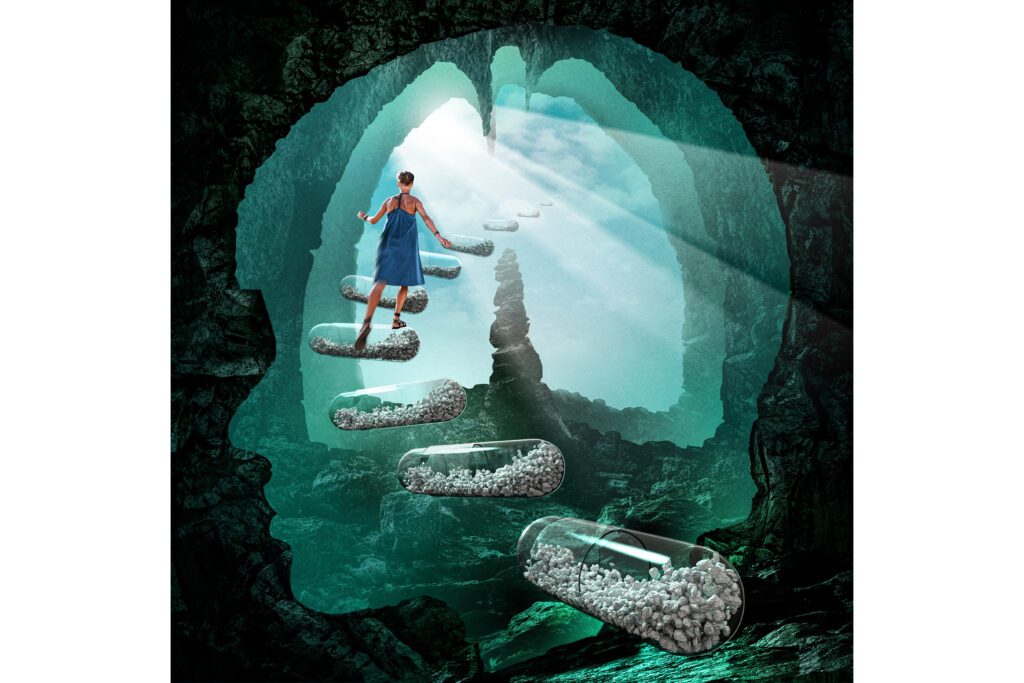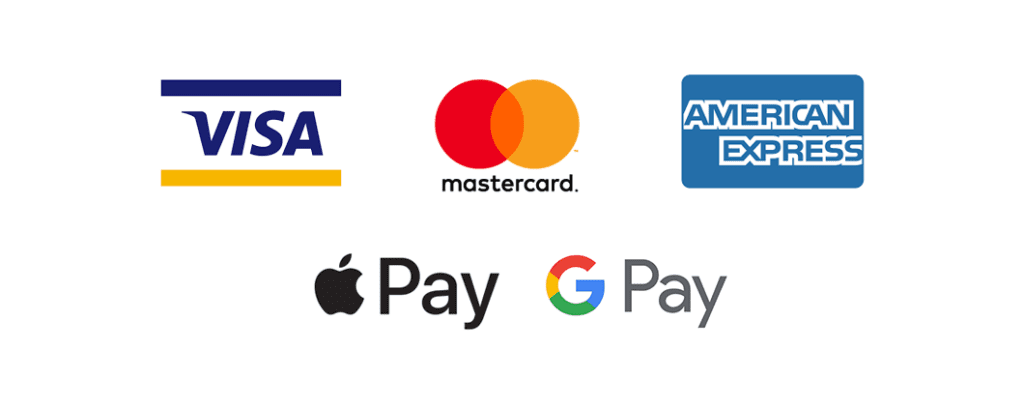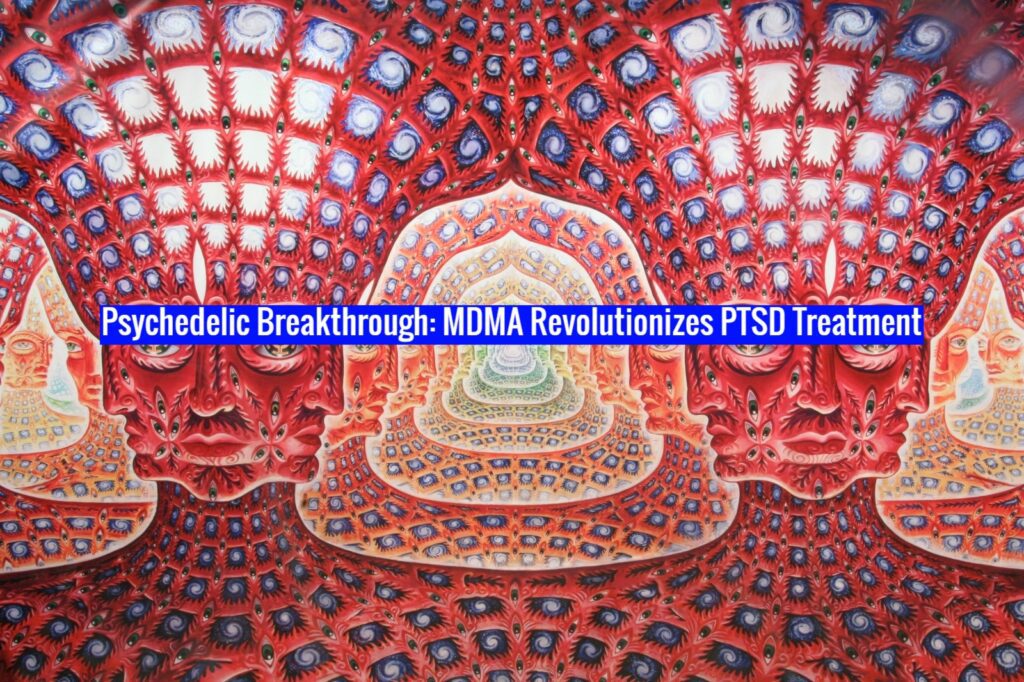
Summary: Psychedelic therapies, including the use of MDMA, Mushrooms and LSD are set to revolutionize psychiatric treatments, especially for those with post-traumatic stress disorder (PTSD).
The anticipation builds for the approval of MDMA-assisted therapy for PTSD, which will mark a first for a psychedelic in mainstream medicine. MDMA’s potential extends to patients with multiple or treatment-resistant disorders, particularly those who concurrently suffer from PTSD and substance use disorder (SUD).
In MDMA-assisted therapy, the drug aids in dampening fear responses to traumatic memories, enabling patients to process them effectively.
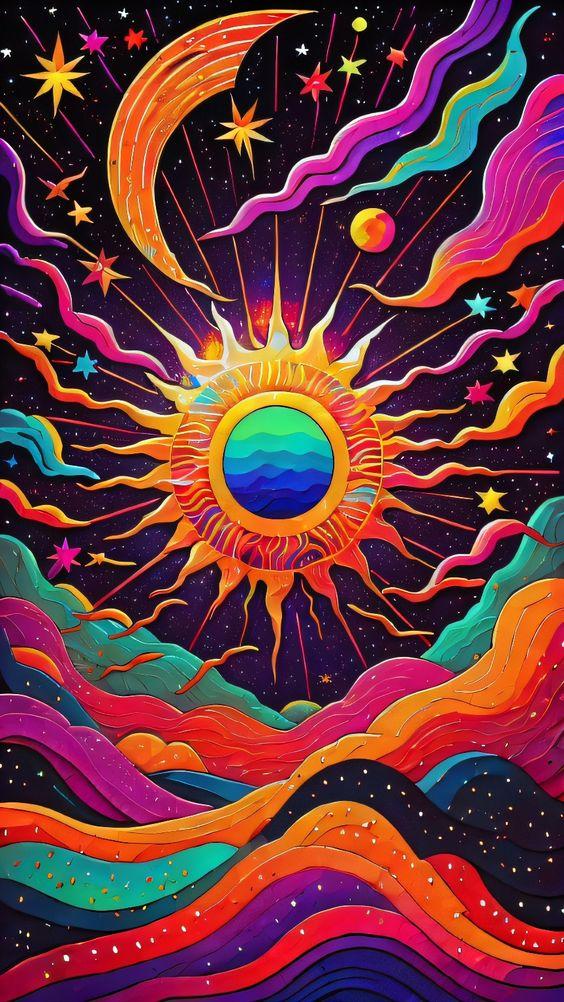
Key Facts:
- MDMA is expected to be approved for – assisted therapy for PTSD, the first psychedelic treatment for mental health disorders.
- MDMA-assisted therapy improves symptoms of both PTSD and SUD, a promising solution for patients with concurrent disorders.
- MDMA helps in the therapeutic process by reducing the fear response to traumatic memories, enabling patients to process these memories possibly for the first time.
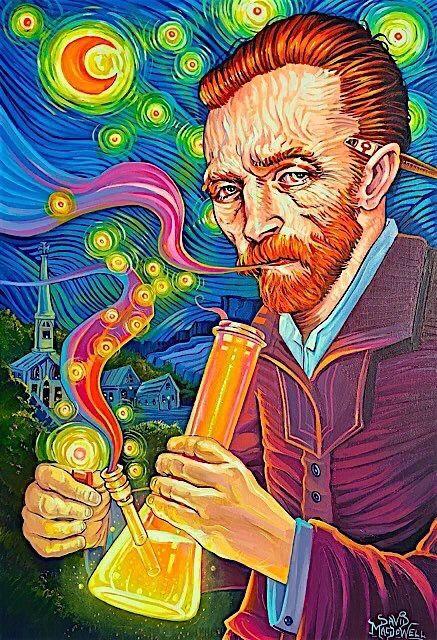
Psychedelic-based therapies are poised to change the treatments that psychiatrists can offer patients.
The highly anticipated approval of MDMA, or “ecstasy,” to treat post-traumatic stress disorder would be the first for a psychedelic drug, ushering in changes for patients, mental health providers and society.
A decision on MDMA-assisted therapy for PTSD in early 2024.
How well this revolutionary research will be implemented into practice will depend on patients’ willingness to undergo psychedelic-based treatments and their ability to access those treatments.

Changing treatments and outcomes
Approval of psychedelic therapies is set to help patients with mental illnesses, particularly those with multiple or treatment-resistant disorders. PTSD can occur after being exposed to a traumatic event.
Current Big Pharma treatments, while improving symptoms in some patients, leave many without any benefit at all.
For the many people who have PTSD and habitually use alcohol or other substances, rates of nonresponse to treatment are even higher so new approaches to treat patients with both PTSD and a substance use disorder are always being explored.
A promising ‘new’ treatment option for patients with both PTSD and SUD is Psychedelics that include both natural (psilocybin, mescaline, DMT) and synthetic (LSD, MDMA)
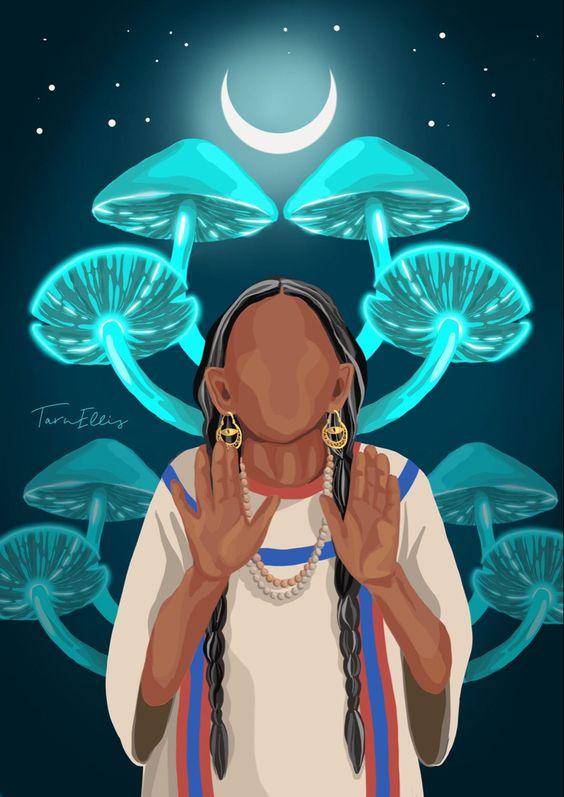
Natural psychedelics have been used medicinally and spiritually in traditional cultures for centuries.
“Early studies looking at psychedelic therapy for one indication, like PTSD, they noticed improvements in symptoms of another mental health disorder, like depression or SUD.
Since 2009, approximately 80 clinical trials involving MDMA have been completed or are ongoing.
These trials investigate the use of MDMA in a wide range of disorders, including anxiety, depression, obsessive compulsive disorder, SUD and PTSD. These diverse studies highlight the potential effects of MDMA across multiple disorders.
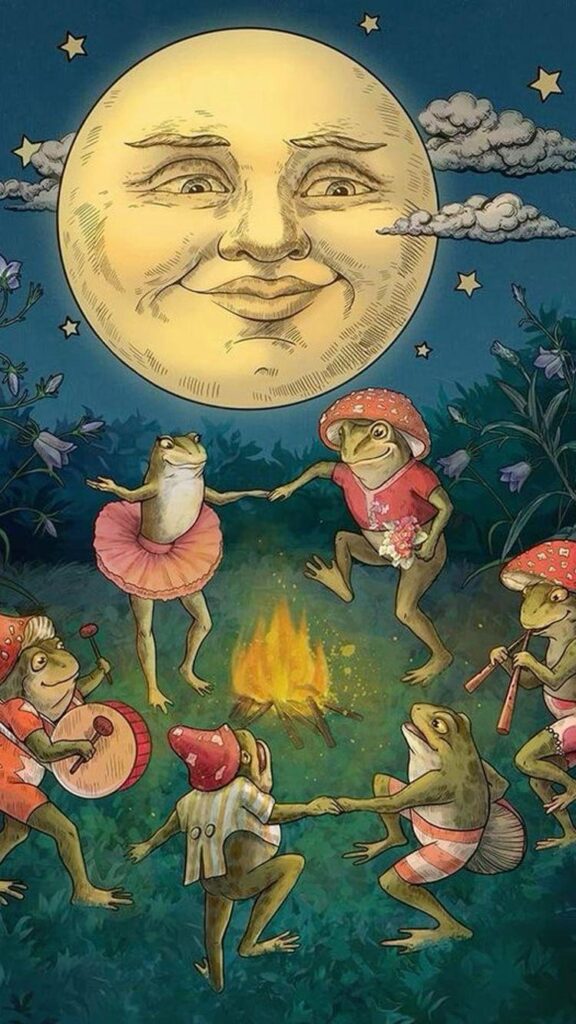
Having a treatment like MDMA that improves both PTSD and SUD symptoms is really exciting for the field.”
Currently, drugs used to treat PTSD may be given with or without another form of therapy, broadly referred to as “talk therapy.” For MDMA-assisted therapy, the talk therapy component is a fundamental part of the treatment.
“In the context of MDMA-assisted therapy for PTSD, MDMA is thought to dampen the fear response around the traumatic memory, allowing the participant to engage with the therapy team to process this memory, sometimes for the first time in their lives.
“Instead of running from it, they can process the traumatic memory and move past it.”
This processing may also apply to other mental functions, perhaps accounting for MDMA’s ability to improve symptoms for other disorders, like SUD.
“Participants in psychedelic clinical trials have lasting benefits that come from changes in their behaviors, their thought processes and their interactions with others. “Participants often point to these changes as what made the difference in their symptoms.”
The immediate effects of MDMA during therapy are not without concern, however they will produce feelings of “ecstasy.” “Ecstasy is a common descriptor for the effects caused by recreational MDMA, used so frequently that it became a nickname.
However, because this therapy is a difficult process of self-healing, MDMA in this context does not usually produce ecstasy, Jones said. This common concern points to some of the possible barriers that Jones wanted to assess in her recent publication.
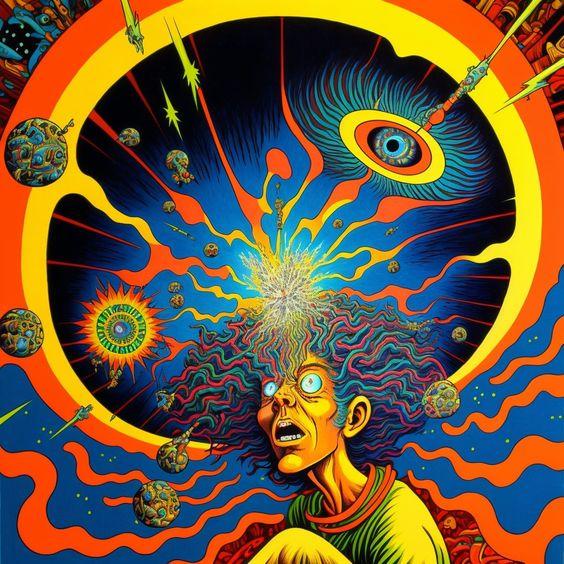
Changing Minds
New government policies are allowing psychedelic clinical research now including Australia who is set to clinically prescribe MDMA and Psilocybin.
70% of survey respondents indicated their support for MDMA-based research and belief that MDMA could be useful for treating mental health disorders.
A smaller group, 59%, would be willing to receive an MDMA-based treatment if it were recommended by a mental health provider. The survey results suggest that most people who use substances are open to MDMA research and would be willing to try an MDMA-based therapy.
Also examined is the role of race and ethnicity on opinions about MDMA-assisted therapy. Despite their underrepresentation in psychedelic clinical trials, racial and ethnic groups had similar levels of support for MDMA research. However, there were small, but potentially important, differences in willingness to try an MDMA-based therapy.
While this research brings up additional questions, it is believed these results can help researchers and mental health providers to understand how to develop and implement treatments more equitably for different patient and ethnic populations.

